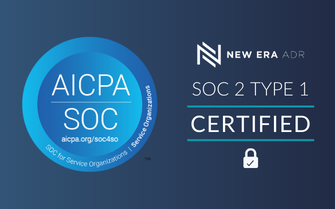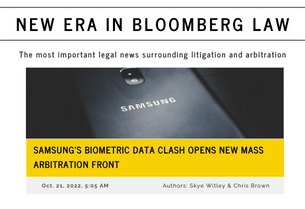
A decade ago, significant litigation concerning the classification of gig workers began to surface. Recently there’s been renewed debate about the role of arbitration in the “gig” economy. Just this month, the Massachusetts Supreme Judicial Court heard a case on whether former food delivery drivers for GrubHub were required to honor their arbitration clauses in their employment agreements. This has lead many progressive companies in the gig economy to seek alternatives to court and traditional arbitration, surfacing the application for Online Dispute Resolution (or “ODR“)
Gig Economy Workers
Gallup estimated that as many as one-third of workers in America are gig workers. The gig economy is not only wrestling with challenges to existing laws, but is also colliding with the rise of new populations of gig workers such as the influencers on social media. Often referred to as a “side hustle” many people take on jobs that are advertised as flexible and can often be done locally, even if the epicenter of the company is far away. The gig economy describes businesses that rely on short-term labor and/or freelancers as their primary workforce.
Classification of Gig Workers – Employee Vs. Independent Contractor
Traditionally, gig economy employers have classified the vast majority of their gig workers as independent contractors. Since the contract work performed by gig workers is considered freelance, contract, on-call, temporary, and/or as-needed they do not have access to the rights or benefits that full-time employees enjoy. For example, under the Independent Contractor classification, rights and benefits such as healthcare, anti-discrimination protections, workers’ compensation, overtime pay, minimum wage, FMLA, Social Security, and retirement are not required. Most federal laws that protect workers only apply to employees, so therefore legal obligations under statutes such as the Fair Labor Standards Act may also not apply. There is no federal standard definition for “employee” or “independent contractor.” As such, the onus has been left to employers to define classification of workers. This has created a risk for employers, as workers can challenge the definition as a misclassification by filing a lawsuit.
Despite these non-traditional work arrangements, gig economy workers make up the bulk of the workforce for companies like GrubHub and DoorDash, and ride-sharing apps like Uber and Lyft. For these businesses, a contract employee is often the primary person to serve as a consumer touchpoint.
This has resulted in claims that these types of companies are evading costs and liabilities associated with employment. Others have argued that the gig economy provides these workers more independence and flexibility, and are therefore truly independent contractors. For example, many gig-fluencers already have full-time jobs, participating in online endorsements part time.
Enforceability of Independent Contractor’s Arbitration Agreements
Regardless of where that line is ultimately drawn surrounding classification, one area in the gig worker-to-company relationship that has been questioned is the enforceability of arbitration agreements. The primary statutory mechanism for enforcing arbitration agreements is the Federal Arbitration Act (the “FAA”). Enacted in February 1925, the FAA provides the mechanism by which private litigation can be resolved outside the court system through alternative dispute resolution (or “ADR“). Its power is predicated on the Commerce Clause of the Constitution and it has often been seen as legislative encouragement of arbitration. But even though the FAA demonstrates some clear support for arbitration, it also includes exemptions disallowing arbitration clauses for seamen, railroad workers and any “other class of workers engaged in foreign or interstate commerce.” These exemptions were recently challenged in Massachusetts.
Traditional Arbitration isn’t Working for Either Party
Employees and plaintiffs’ attorneys claim that arbitration agreements are onerous and unfair, depriving employees of their right to be heard in the public forum of court. They argue that employers often prefer arbitration because they do not involve public record and can facilitate quiet settlements. Moreover, it is also argued that because employers choose the arbitration forum, it could be in a different state from where the person lives and works, causing further financial hardship for employees. However, this binary thinking is flawed.
Related Article: Ad(Dressing) Bias in E-Commerce Disputes
Litigation, whether it is in traditional arbitration or court, presents a host of identical problems and issues, including mounds of process and procedure and, sometimes, very little focus on the actual parties and their issues and problems. Neither forum, as currently constructed, really favors the employer or employee.
A New Era of Online Dispute Resolution
In contrast, Online Dispute Resolution (or “ODR”) presents progress in the form of an evolved online forum that treats both parties fairly by emphasizing efficiency, cost certainty, timeliness, accessibility and the use of technology to facilitate the process. So while there is an overarching belief that many companies who rely on the gig economy insert arbitration clauses to hamstring their workers’ ability to bring claims, the truth is many progressive companies in the gig economy are now researching alternatives to court and traditional arbitration, including the use of ODR, to reduce the cost, time, and energy spent by all sides in litigating legal disputes with their gig workers. It’s the same phenomenon we’ve written about with consumers, and it involves the same ability to save everyone involved in legal disputes valuable and limited resources.
Related Article: ODR Can Be a Tool for Consumers to Resolve Disputes Quickly




